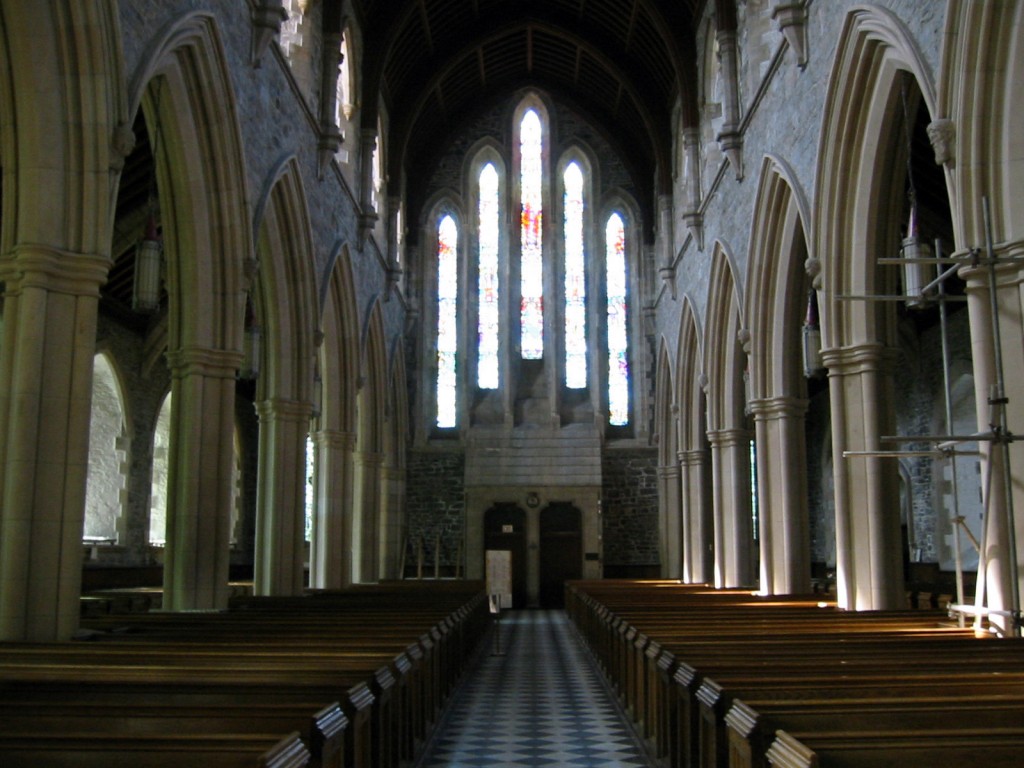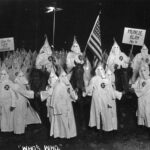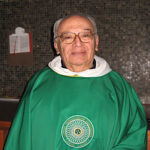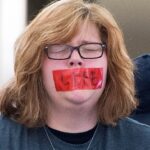Anglicans have never been very showy people. There was once that G.K. Chesterton fellow, but he eventually moved on. Not that Anglicans don’t talk about their faith or excel in their given fields. If it weren’t for Anglicans, Anglo-American culture as we know it simply would not exist. However, it remains a curious fact that most famous Anglicans are not necessarily famous for being Anglicans. Edmund Burke, and even the theologian Richard Hooker, are remembered as great political thinkers. John Donne, Samuel Johnson, W.H. Auden, T.S. Eliot, and countless others are remembered as poets. Even great Anglicans who are remembered primarily for their Christian works are hardly ever remembered as Anglicans per se. The Wesley brothers and George Whitfield are remembered as evangelicals. C.S. Lewis, depending on which circles you run in (and I run in both), is either a great evangelical or an almost Catholic. Similarly, it is often taken for granted that the works of men like John Henry Newman and G.K. Chesterton are all “Catholic Works” when the reality is decades of their writings were produced while they remained members of the Church of England.
It sometimes seems that Anglicans, at least in America, are like something out of a fairy-tale. We read about them occasionally, but when pressed we would have a hard time saying who they are and what exactly they have done for Christianity. It doesn’t help matters that much ink has been spilled, including by myself, about the demise of the Church and its never ending controversies. But this is really only half the picture. Conservative Anglicans are ever present, and influentially so, in our current public discourse.
Like their forebears, the Anglicans of today are not known for their denominational affiliation. Perhaps this curious fact is representative of their success in walking the via media. Whatever it is, our social witness today is certainly healthier because of their work.
Eric Metaxas is well known for his biographies of William Wilberforce and Dietrich Bonhoeffer, and if you’ve ever listened to his testimony or any of his other speeches it is easy to see his passion is derived from a charismatic evangelicalism. Like C.S. Lewis, he has come to represent a sort of mere Christianity in the public square. Also like C.S. Lewis, he is a member of the Anglican Communion and lists his home Church as St. George’s Episcopal.
Alan Jacobs is a professor at Baylor University and his Biography of the Book of Common Prayer is a must read, not only for those who regularly use it, but for every Christian whose prayer life has undoubtedly still been shaped by the great book. His blogs are also excellent, and should be high on your reading list.
Wesley Hill is a professor at Trinity School for Ministry and one of the few people making thoughtful contributions as to how the Church should minister to gay people.
Roger Scruton is possibly the most important conservative philosopher alive today. His book Our Church: A Personal History of the Church of England, is a must read, but then again, I say that about everything he writes. The man wrote an entire book on faces – yes, faces – and changed the way I look at the world.
This is far from an exhaustive list. Anglicans Alister McGrath and John Lennox are well known for their apologetics and for going toe to toe with Richard Dawkins and the New Atheists. If you are restless and reformed you have probably heard the names of men like N.T. Wright and J.I. Packer, and if you really like to read, you may have heard of the political theologian Oliver O’Donovan.
So while many others and myself continue to lament the squishiness of Canterbury and the apostasy of the Episcopal Church, remember that reports of the Church’s death are greatly exaggerated.





Comment by Heather Sherlock on February 3, 2014 at 1:48 pm
Morton Blackwell, president and founder of the Leadership Institute, is also Anglican. http://www.leadershipinstitute.org/aboutus/morton.cfm
Alan Crippen, president and founder of the John Jay Institute, is Anglican as well.
http://www.johnjayinstitute.org/about-us/staff/
Comment by Ben Welliver on February 5, 2014 at 8:06 am
Brian, there is a consistent pattern in the history of the Church of England – all the creative stuff and spiritual revivals happen at its fringes, among those leave the C of E or are barely tolerated within it. The Wesley brothers were Anglican clergy till they died, but they were hated by the establishment and eventually the movement left the C of E. In the 1600s the two greatest Christian writers in England – Milton and Bunyan – were outsiders. In the 1700s, English hymnody sprang to live with the hymns of a Dissenter, Isaac Watts. I could list a thousand other examples. An established state church rarely produces saints, rather the saints are outside it or are barely tolerated within it. Our Founding Fathers had the wisdom to make a national church illegal.
Comment by Brian Miller on February 14, 2014 at 1:41 pm
Mr. Welliver, I tried to address some of your concerns in a related comment below.
Comment by James Barlow on July 11, 2017 at 11:35 pm
They were not hated by the establishment. Canterbury gave a remarkable speech before the House of Lords in 1811 recommending absolute tolerance
Comment by James Barlow on July 11, 2017 at 11:42 pm
“An established state church rarely produces saints” –pure nonsense!
Comment by Anglicanophilous Nedum Simplex on February 6, 2014 at 8:09 am
Well said, but it whets the appetite for an extended essay at a taxonomy of Anglicans and Anglicanisms to follow!
For example, I enjoy Roger Scruton every time he crosses my path, but have never read him properly yet, and wonder if he is a convinced theist as well as an Anglican…
For another, if the quotations in the Pilling Report are accurately representative, how far has my dear Oliver O’Donovan fallen into unpersuasive incoherence!
Ben Welliver writes, ” Our Founding Fathers had the wisdom to make a national church illegal.” I wonder how far, in doing so, they are in keeping with a certain strand of Anglican tradition leading from Richard Hooker through Richard Baxter to C.S. Lewis, in facilitating the recognition of partricular Churches in the visible Church by their shared orthodoxy, without insisting on the universal necessity of a particular church order?
Comment by Brian Miller on February 14, 2014 at 1:41 pm
Scruton has his doubts, to be sure, which I have noted elsewhere. But they are doubts I can empathize with and think in some regards make his faith and writing more real. I was not aware of O’Donovan’s involvement with Pilling, and will have to investigate. I was at an event with him quite recently and heard him advise against any change in our understanding of marriage.
Re. Mr. Welliver, there is a history of recognizing a difference between an established church and what Eliot would call national churches in a cultural sense. All the Tractarians opposed establishment, and advocating Anglicanism in no way equals advocating an established Church. Many of the Founding Fathers were Episcopalians, as another commenter pointed out the example of George Mason. It is also a misrepresentation of history to suggest the greatest writers were always on the fringe. I personally don’t want to live in a universe where genius is an anomaly consigned to the sideline. Bunyan was not an Anglican, and was also not a genius, and it is doubtful if Milton, who lived in an age of Puritan power and served Oliver Cromwell, can be considered fringe for his day.He was quite powerful. (It is also doubtful if he is a writer to be theologically admired. See Lewis and Chesterton.) There are many examples of Anglicans in the mainstream who are not well known, such as Lancelot Andrewes, whose quiet saintly character and demanding prose obscure him from most of posterity. Traditionalists produced quite a number of Saintly characters during the interregnum, when Anglicans were severely persecuted by the government Milton was party to. Many of the other luminaries I named in the article, while they may have had their eccentric traits, can hardly be considered “fringe.”
Comment by James Barlow on July 11, 2017 at 11:37 pm
How can one be an Anglican and not a theist?
Comment by Fr. Joshua Lickter on February 12, 2014 at 8:37 pm
Nice article. Thanks for the shout out to our communion. I would add that Anglicans in America are alive and well, and are aggressively planting churches. It’s not happening in the Episcopal Church, but it is through the Anglican Church in North America, with whom I am affiliated. My bishop, Todd Hunter, is the former president of the Vineyard, and the Alpha program as well. Now he is helping lead the charge in planting Anglican churches! Blessings to you.
Fr. Joshua Lickter
Incarnation Anglican Church
Roseville, CA.
Comment by mattwaters on February 12, 2014 at 9:57 pm
The J.C. Ryle, Martin Lloyd-Jones, and John Stott must be added to the list of late, great Anglicans…and I hope author Brian Miller knows that George Mason was elected to the vestry of Truro Parish in 1749, and remained on until 1785, just 6 years before his death.
Comment by Martyn G on February 13, 2014 at 8:12 am
Martin Lloyd Jones was a Calvanistic Methodist by birth and by conviction.
Comment by mattwaters on February 12, 2014 at 9:58 pm
J.C. Ryle, Martin Lloyd-Jones, and John Stott must be added to the list of late, great Anglicans…and I hope author Brian Miller knows that George Mason was elected to the vestry of Truro Parish in 1749, and remained on until 1785, just 6 years before his death.
Comment by Jeremy S. Crenshaw on February 13, 2014 at 11:46 pm
The group that I am a part of, Anglican Mission, should also not be forgotten in all of this, since they have had/still have a hand in making this all take place. Now if someone can just get all of the conservative Anglicans to stop backbiting, then we might truly see something special. For my part, I am seeing some very special things taking place in the Mission.
Comment by Penny Schmidt on February 14, 2014 at 5:22 am
I want to know what are all these priest are doing to support their families . They are working out side the church to feed Their families just bairly getting by. Waiting for someone to make up their minds on what to do. People hungry to know the Lord people wanting to share His word. Come on you people do you really know what you are doing.
Comment by barbie barnes on February 17, 2014 at 2:09 am
I am a cradle Catholic but curiously found myself in the Anglican Church. I am forever dented to those of this wonderful Church. When the Catholic Church refused to support me many years ago because I wanted a divorce from a very abusive spouse of whom undoubtedly would have eventually. killed me, my faith crumbled. Many years later I found myself in anew wonderful relationship with Jesus.
Thank you My Fellow Anglicans.
Forget the pettiness that exists, carry
on with what really matters and what our Church really is. THE PROCLAMATION OF THE WORD OF JESUS.
Comment by David Hein on February 19, 2014 at 12:08 pm
Excellent article. Readers may be interested in a 2010 book I coedited with Charles Henery (formerly of Nashotah) called Spiritual Counsel in the Anglican Tradition (James Clarke; Wipf & Stock): fifty great Anglicans–Donne, Lewis, Farrer, Sayers, many others. There’s also good treatment by various writers (Ralph Wood, Ann Loades, et al.) of various friends of Lewis in C S Lewis and Friends: Faith and the Power of Imagination (SPCK; Cascade, 2011).
Comment by TB on April 11, 2019 at 7:33 pm
John Lennox isn’t Anglican.